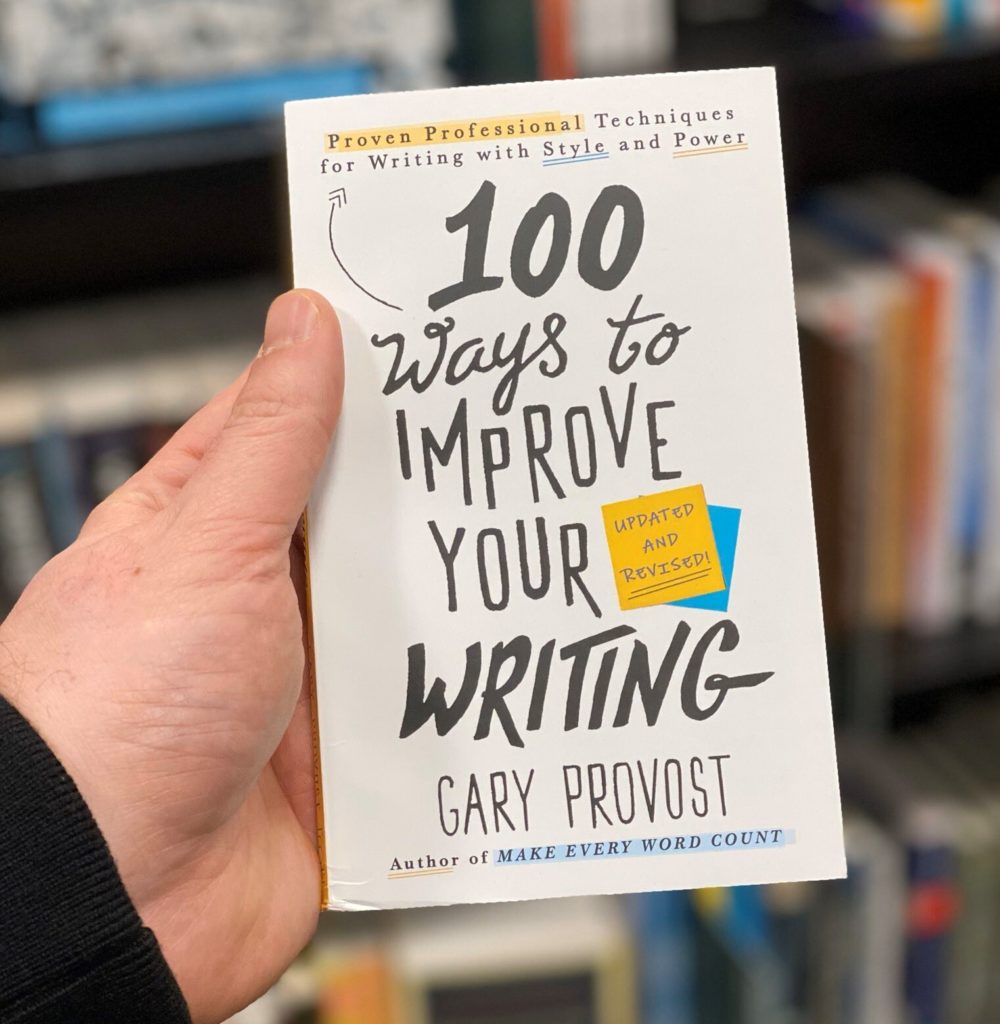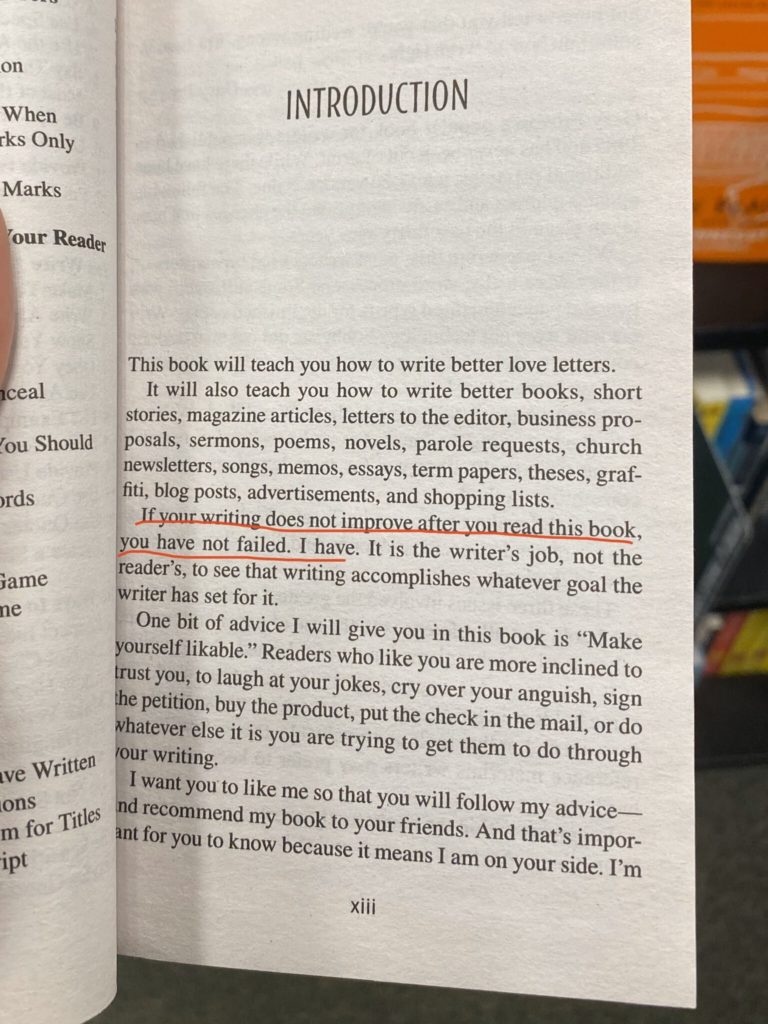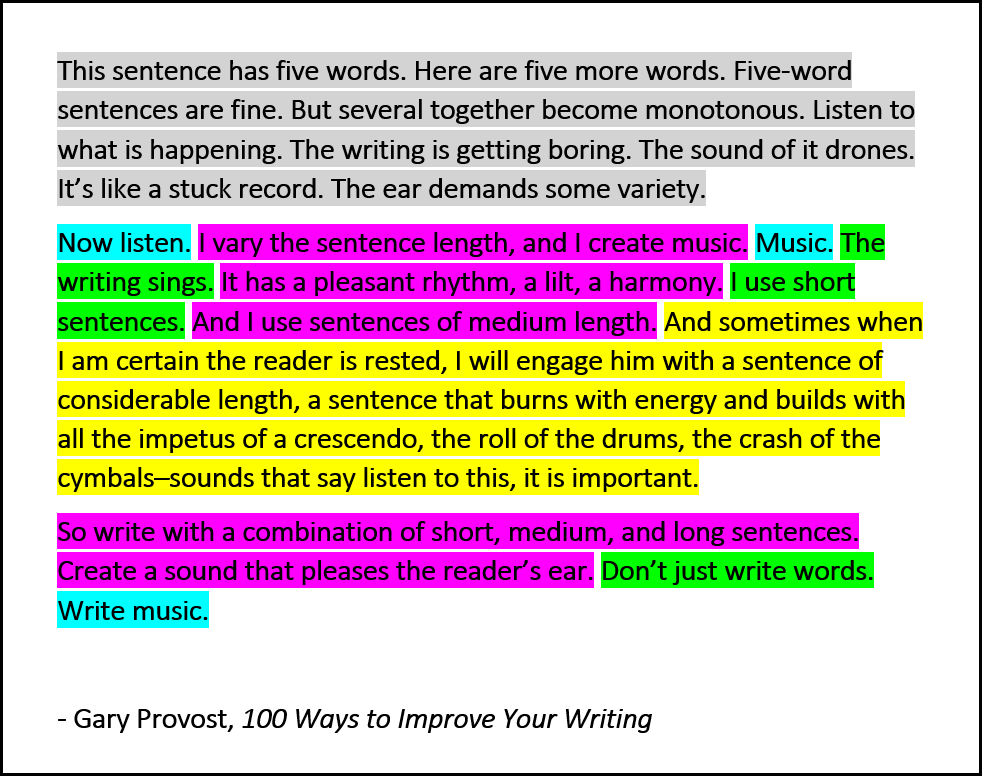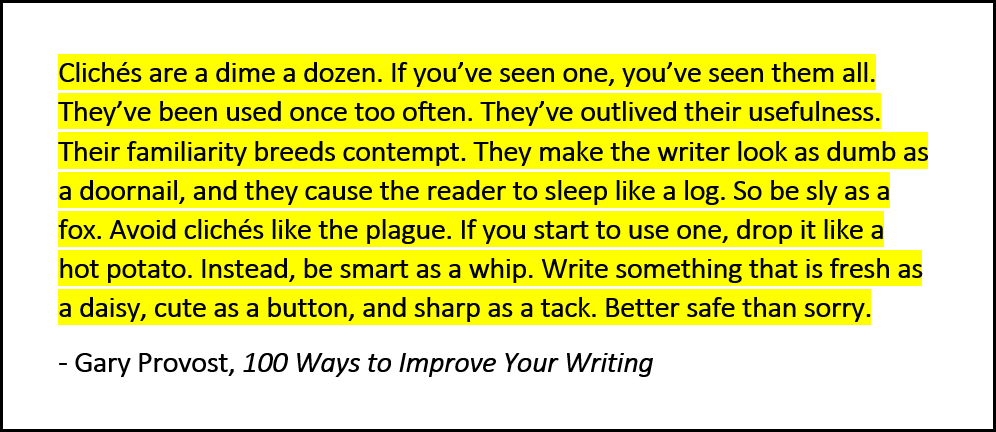
I recently picked up a copy of Gary Provost’s book, “100 Ways to Improve Your Writing,” and thought I’d share a few lessons learned that were quite insightful.
I wasn’t planning on purchasing the book when I bought it a few weeks ago because I’m in the middle of researching several books for a leadership book that I’m writing, so I’m focused on getting through that backlog first.
However, as I was sifting through the shelves at a local Barnes & Noble, I picked up a copy and decided to buy it because of two reasons.
First, it’s short.
Second, I read the following sentence in the introduction:
“If your writing does not improve after you read this book, you have not failed. I have.“

It’s such a powerful sentence that hooked me into buying it. Provost’s point is spot on, which is that it’s the writer’s job to accomplish the goal that they set when writing the book, and not the reader’s.
The book is full of other gems about how to improve your writing through choosing better words, developing your style, and leading with strong beginnings.
5 Lessons from 100 Ways to Improve Your Writing
Here are five lessons that I thought were worth sharing from the book.
Lesson 1: Steal
Provost recommends that you improve your writing by stealing from different sources. By stealing, he means taking “only a sentence or a phrase at a time” from everyday encounters such as a barbershop conversation, a joke you heard, or a metaphor you read.
He recommends that you keep two things in mind when you steal.
- First, steal small (not big).
- Second, steal from multiple sources and not just from one.
Here’s a phrase that he references to make his point:
If you steal from one writer, it’s called plagiarism, but if you steal from several, it’s called research.”
Gary Provost, 100 Ways to Improve Your Writing
Of course, it goes without saying that if you need to steal a lot more than just a sentence, then you’ll need to get prior permission from the author or copyright holder.
Lesson 2: Write Music
This lesson is perhaps one of Provost’s most famous and most quoted part of the book. In it, he highlights the importance of changing the length of your sentences so that you give your readers’ ears a break and grab their attention.
He does so using a brilliant example:
This sentence has five words. Here are five more words. Five-word sentences are fine. But several together become monotonous. Listen to what is happening. The writing is getting boring. The sound of it drones. It’s like a stuck record. The ear demands some variety.
Now listen. I vary the sentence length, and I create music. Music. The writing sings. It has a pleasant rhythm, a lilt, a harmony. I use short sentences. And I use sentences of medium length. And sometimes when I am certain the reader is rested, I will engage him with a sentence of considerable length, a sentence that burns with energy and builds with all the impetus of a crescendo, the roll of the drums, the crash of the cymbals–sounds that say listen to this, it is important.Gary Provost, 100 Ways to Improve Your Writing
So write with a combination of short, medium, and long sentences. Create a sound that pleases the reader’s ear. Don’t just write words. Write music.”
And here’s a highlighted version of the same quote that shows you the variety of different sentence lengths in different colors.

Lesson 3: Use Dense & Familiar Words
Dense words are those that can compress a lot of meaning. Here are some examples that Provost gives:
- Instead of writing “once a month,” write “monthly“
- Instead of writing “something new,” write “novel“
- Instead of writing “impossible to imagine,” write “inconceivable“
Using dense words in your writing will help increase the impact of your ideas.
Similarly, using familiar words that your readers recognize would carry a higher level of power and help avoid confusion.
Provost gives a good example of this:
Do you know what a mandible is? Your dentist does. She uses that word every day.
So if you are writing a story just for your dentist, use mandible. But if you are writing for everybody else, use the more familiar word, jaw.”
Gary Provost, 100 Ways to Improve Your Writing
So avoid sounding fancy and focus on words that your readers will recognize.
Another tip that Provost shares is about the use of statistics in writing. He recommends that you should use them to help establish credibility, but not overdo it because they could overwhelm your reader.
Here’s his guidance on frequency:
“Statistics should be sprinkled like pepper, not smeared like butter.”
Lesson 4: Put Words You Want to Emphasize at the End
If you have a piece of information you want to stress to your reader, then Provost recommends that you include it at the end of your sentence.
This was eye-opening to me because I’ve never really thought of it, but it makes so much sense because people pay extra attention to those last few words.”
The concept is best explained by the following three examples:
If you want to emphasize the amount of money that somebody owes you, you write, “By June first please send me a check for $107.12“
If you want to emphasize the due date, you write, “Please send me a check for $107.12 by June first“
And if you want to emphasize who the check is to go to, write, “On June first the check for $107.12 should be sent to me.“
Gary Provost, 100 Ways to Improve Your Writing
Provost explains that this is a lesson that is best appreciated when you hear the words being read aloud. The last word or two are usually stressed the most by the recipient’s ear.
Lesson 5: Avoid Clichés
Using clichés in in your writing can hurt your message.
Here’s tongue-in-cheek advice from Provost on why you should avoid them.
Clichés are a dime a dozen. If you’ve seen one, you’ve seen them all. They’ve been used once too often. They’ve outlived their usefulness. Their familiarity breeds contempt. They make the writer look as dumb as a doornail, and they cause the reader to sleep like a log. So be sly as a fox. Avoid clichés like the plague. If you start to use one, drop it like a hot potato. Instead, be smart as a whip. Write something that is fresh as a daisy, cute as a button, and sharp as a tack. Better safe than sorry.”
Gary Provost, 100 Ways to Improve Your Writing
Here’s an image of the same quote that you can share with a chronic cliché user.
